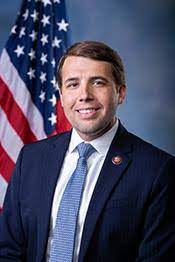WASHINGTON, DC — Bipartisan legislation currently being drafted in the House is attempting to clarify the role of VA’s Office of Whistleblower Protection (OAWP), an organization that has been fraught with challenges since it was established in 2017. The legislation would provide this clarity by removing OAWP’s investigative powers and requiring it to refer whistleblowers to an agency that’s better equipped to protect them.
In 2019, the House VA Subcommittee on Oversight and Investigations held a series of hearings examining the first two years of OAWP. A VA Office of the Inspector General investigation found that OAWP had mishandled numerous investigations, failed to protect VA whistleblowers and, in some cases, was a source of whistleblower retaliation itself.
The hearings probed these failures and highlighted the duplicative nature of VA’s whistleblower protection system. The Office of Special Counsel (OSC) has whistleblower protection duties for the entirety of the federal government and more authority than OAWP, including the ability to force agencies to comply with recommended punishments.
The draft legislation, created by subcommittee chair Rep. Chris Pappas (D-NH) and ranking Republican Rep. Tracey Mann (R-KS), would discontinue OAWP’s investigative arm and direct the office to send all whistleblower complaints to OSC.
VA’s response has been that this legislation would hinder the department’s ability to improve accountability and protect whistleblowers. At a hearing last month, Pappas and Mann countered that OAWP had failed to do either of these things in its five years of existence, and VA employees have suffered in the meantime.
“The 2019 OIG report found OAWP was a failing organization,” Pappas declared. “It frequently worked against its core mission of protecting whistleblowers.”
The agency has not improved much in the intervening years, he added. “In 2021 OAWP made 15 recommendations for disciplinary action against employees who retaliated. Of those, two-thirds were not implemented. Of the five that were acted on, only one was fully implemented.”
Frequently OAWP justice for whistleblowers comes too late, sometimes conveniently so, Mann added.
“Just last week, we learned about an OAWP investigation into a senior leader. The investigation took place from September 2020 to January 2021, yet the report was allegedly delayed for more than a year. It was finally finished on Feb. 3, 2022,” Mann said. “[The report found that the] senior official did retaliate against a whistleblower. OAWP recommended discipline; VA agreed it was warranted; but it was not carried out. Why? Because the individual retired the same week, the report was finalized. [Meanwhile] the whistleblower and other staff involved left VA because of this retaliatory behavior.”
Mann was referring to an OAWP investigation of former Chief Information Security Officer Paul Cunningham, who allegedly retaliated against former IT leader Joseph Stenaka, according to a report published on FedScoop last month.
According to Mann, this case exemplifies why he does not believe OAWP will ever be able to fulfill the mission it was created for.
“No matter how many lawyers, or how much money, or how many attempts at restructuring, or how many authorities Congress gives the office, the assistant secretary will still report to the secretary,” Mann declared. “The office will never truly be independent. The fox is guarding the hen house, and it’s time for a change.”
VA officials defended OAWP at the hearing, explaining that the challenges the office is facing all stem from the tumultuous first two years of its existence.
“Unfortunately the challenges experienced by OAWP during its initial years, culminating [in the 2019 OIG Report], not only failed to advance its establishment, but created distrust with stakeholders, which has made an already challenging task that much harder to accomplish,” admitted Maryanne Donaghy, VA Assistant Secretary for Accountability and Whistleblower Protection.
One of those challenges was a backlog of over 500 whistleblower reports.
“That led to timeliness issues. Reports of investigations were going out years after certain actions,” Donaghy explained. “All of these are places where OAWP has shown improvement. … [The tools that OAWP has been provided] will allow us to get to the next level and allow us to make cultural improvements. I believe in the tools of this statute to provide whistleblower protection and get at the culture of VA.”



